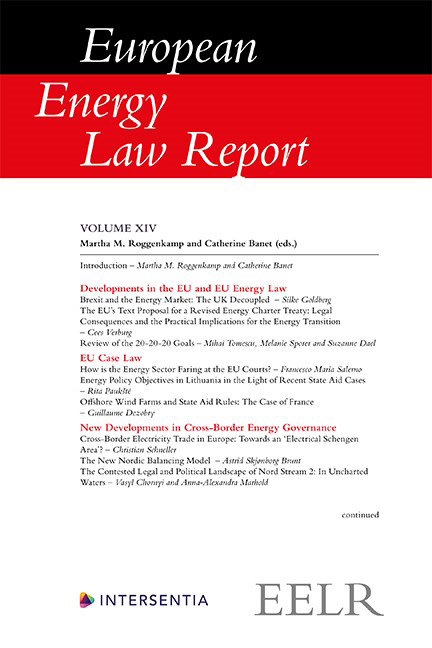Preface
Published online by Cambridge University Press: 26 May 2022
Summary
The editors are very pleased to present the European Energy Law Report XIV. The European Energy Law Report is an initiative taken by the organizers of the European Energy Law Seminar which has taken place on a regular basis in the Netherlands since 1989. The aim of this seminar is to present an overview of the most important legal developments in the field of international, European Union (EU) and national energy and climate law. Whereas the first seminars concentrated on the developments at the European Community level, which were the results of the establishment of an Internal Energy Market, the focus has now gradually switched to the developments at the national level following the implementation of the EU directives on the internal electricity and gas markets, promoting renewable energy sources, mitigating climate change and securing energy supply. This approach can also be found in the present volume.
Similar to the previous European Energy Law Reports, this book includes chapters based on papers presented at the preceding European Energy Law Seminar (EELS), which is held on an annual basis. In this case, the book covers the main contents of the European Energy Law Seminars of 2020. Although a wide range of topics and developments were discussed at the seminar, we recognise that the common thread is energy transition and cross-border energy activities and their impacts. These issues are discussed in the five parts of this volume. As a preliminary matter, the book starts by presenting three developments that will have an impact on the EU and EU energy law (Part I). These are Brexit and its effects on the EU energy market, followed by a chapter on possible changes of the Energy Charter Treaty and their impact on energy transition, and a chapter reviewing the progression towards the EU’s 20-20-20 goals. The next part (Part II) concentrates on EU case law and in particular on State aid cases in relation to renewable energy sources (and in particular offshore wind) and energy transition measures. Part III reviews some key legal and market developments as well as new infrastructure projects aiming at ensuring cross-border energy flow in Europe. The next two parts discuss two new developments relevant for the energy transition.
- Type
- Chapter
- Information
- European Energy Law Report , pp. v - viPublisher: IntersentiaPrint publication year: 2021

